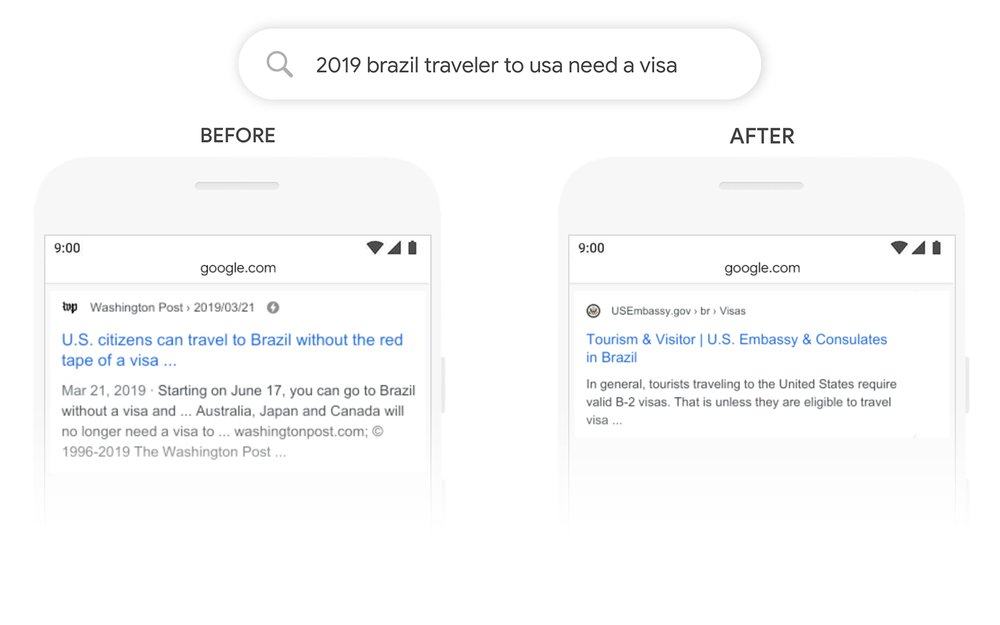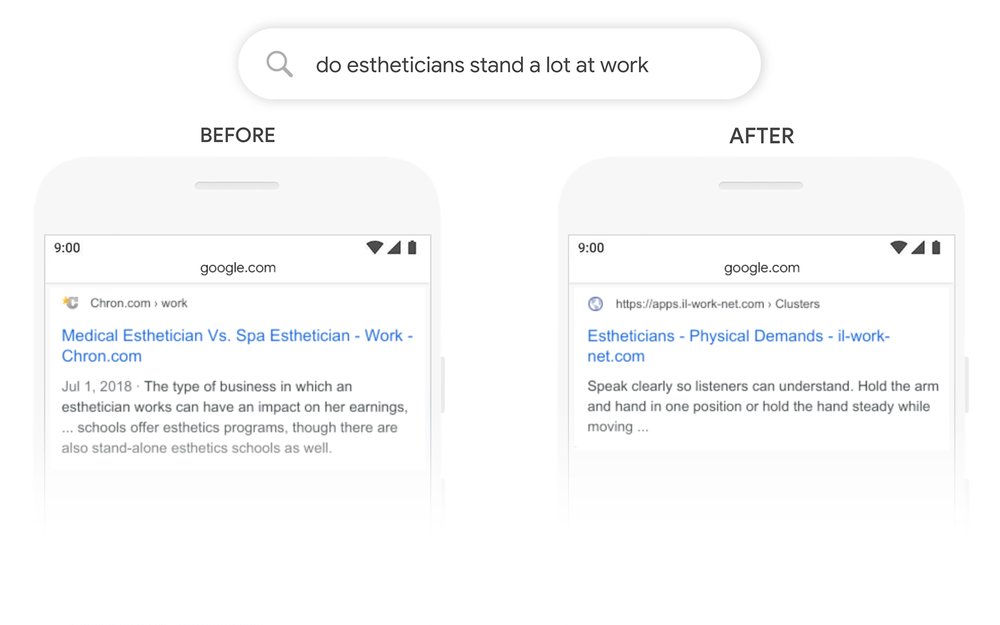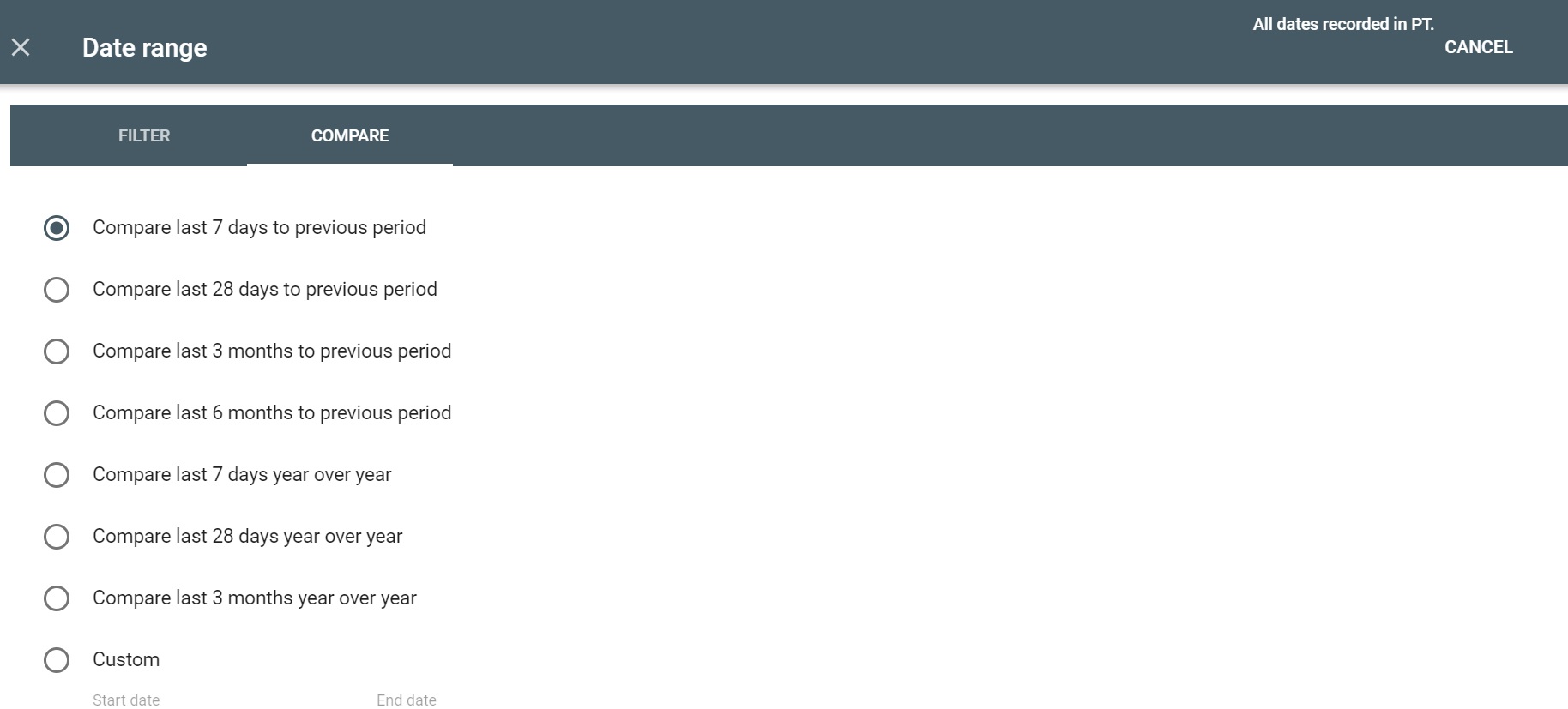Everything You Need to Know About the New Google BERT Update (and How it Affects Your Business)

The Google BERT update was announced on October 24th, 2019, but it had reportedly started rolling out a few days earlier.
This is a MAJOR release – the announcement states that it will affect roughly 10% of queries, more than any other algorithm update in the last few years.
What makes the Google BERT update an even bigger deal is the fact that the 10% of queries that will be affected aren’t limited to a certain industry or business type – as it happened with local business, for instance, in a previous update.
Did your rankings take a hit after the BERT update? We can help you recover AND create new BERT-friendly content. Take a look at our copywriting and content writing services and let’s talk!
What Is Google BERT Update?
The Google BERT update is the new search algorithm update introduced in October 2019. It uses neural networking techniques in order to understand the user intent behind searches better. This means that Google is now much better at matching queries with relevant content.
In Google’s words:
“By applying BERT models to both rankings and featured snippets in search, we’re able to do a much better job helping you find useful information.”
BERT stands for “Bidirectional Encoder Representations from Transformers” and is a “neural network-based technique for natural language processing (NLP) pre-training.”
Sounds confusing, right?
Don’t worry; we’re about to break through the technical jargon.
Briefly put, Google has started using NLP to better understand what users really want to see when they input a query into the search engine.
To make it even clearer, let’s take a look at some examples from Google’s own blog post:
Example 1:

In this example, the Before screenshot shows SERP results before BERT. It’s obvious that the algorithm didn’t understand that the user wanted to travel from Brazil to the US and not vice versa. So it spewed the best content on a similar topic.
However, the article is completely useless to the user because it doesn’t match search intent.
The After screenshot, on the other hand, is spot on.
The main difference?
The AI took into account the preposition “to”.
More importantly, it took into account the sentence as a whole and not bits and pieces of it. With the rise of voice and mobile search, this is extremely important.
Example 2:

In this example, the Google algorithm misinterprets the meaning of “stand” in the Before screenshot and incorrectly equates it to “stand-alone”. In fact, the user simply wanted to know if the career path they were considering was too physically strenuous.
The BERT-powered algorithm gets that right.
What Does the Google BERT Update Mean for Your SEO?
The first step is to see if your ranking was affected by the update. Check out your Google Search Console or your preferred tool for tracking ranking and see if anything changed since October 25th (or a bit earlier, since the announcement came after the update started rolling out).
Keep doing that. The update rolls out in stages and your website might only be affected by the later stages of the rollout.
The simplest way to do this:
Step 1: Identify the keywords that have lost ranking points
Go to your Google Search Console and create a comparison report. Depending on when you do this, choose the adequate periods to compare. For instance, if you do it as soon as the update hit, seven days is the ideal period.

Doing this later on or repeating this checkup regularly? Choose a timeframe that doesn’t fall smack in the middle of the BERT rollout so you get relevant data.
Step 2: Competition research
After identifying the keywords that took a hit, move on to a plain old Google search. Find out:
- Who ranks in your stead now?
- What type of content ranks now? (infographics instead of text content? Video?)
- Is the new content more in-depth or does it simply read better?
Step 3: Improving your content
Don’t let go of your pre-BERT rankings easily! You can recover from this update. The next chapter of this article explains how to do it.
If your content ranks better after BERT, congratulations! It means that you are on the same page with Google and that, for the foreseeable future, you don’t need to make significant changes to your on-page SEO.
If your rankings took a hit due to BERT, you need to reconsider your SEO content approach. Read below to find out how.
How to Leverage the Google BERT Algorithm Update for Your SEO Strategy
It’s been a while since I predicted that search will get more and more human. I’m not saying that just to gloat but also to pinpoint that this update didn’t come out of the blue.
The Google BERT update is a natural follow-up to RankBrain aka the exact moment when Google made the first significant strides in its human-centric approach.
After the announcement broke through, we received some panicked questions from the Idunn customers. Although none of them took a hit (at least not at the moment of writing this post), they wanted to be prepared.
These are some of the questions that we got (and their answers):
Q: How do we optimize for the Google BERT Update?
A: You don’t. You keep on writing for human readers.
Remember the examples above? Google got really good at interpreting human language, so this is exactly what you should use.
This is, in fact, great news. We can finally bid a final and determined adieu to the unnatural language used just to match a keyword with a high search volume.
In other words, say goodbye to headlines like:
Top 10 Places with Best Coffee Chicago
And hello to:
How Do You Find the Best Coffee Places in Chicago?
Natural, spoken-like verbiage will win SERPs in 2020 and beyond. Write like you would explain stuff to a friend.
Q: Does this mean we no longer need keyword research?
A: No, keyword research is still important. It means that you need less keyword density, more LSI keywords, and long-tail keywords.
Why?
See the above question – spoken language is not telegraphic. It has prepositions, verbs and everything it needs to be correct and natural.
So it’s only normal that long-tail keywords will win big. And yes, “what is the best coffee shop in Chicago” is a great keyword. It may sound more like a sentence, but that’s search evolution for you.
Better yet, long-tail keywords are easier to optimize for (still!). This may change quickly, so make sure you plan your SEO content carefully!
Q: Can we still hope to land a featured snippet?
A: Yes! Optimize your content in a featured snippet-friendly format. Here’s what this entails:
- Question-answer format
- Your answer should ideally be 90 words or less
- For list articles, make sure you add a table of contents at the top of your article
- Be genuinely helpful and write great and to the point content
Final Thoughts
If your SEO content strategy was focused on human readers, then BERT might actually bring better rankings for you. You may even discover that you landed a few featured snippets – how cool would that be?
Whenever a major Google update rolls out, the SEO community is in shock. And not the good kind of shock.
But here’s the thing: Google updates their algorithm to make it more human-friendly. To make sure it serves its users properly.
Which is exactly what you should want to! Human readers that love your content have the best chances of turning into your customers.
In a nutshell: adopt a human-centric approach to your SEO content and the Google BERT update will be your best friend!


3 Comentarii la “Everything You Need to Know About the New Google BERT Update (and How it Affects Your Business)”
[…] keyword research is VERY important. No one is denying that. But the Google BERT update of 2019 told us bluntly: we don’t care about your optimization efforts. We only care whether […]
[…] to do: track this SEO content KPI but only to notice sudden changes. An algorithm change (like the Google BERT update) can change the landscape entirely. Make a point to check this weekly or monthly (more frequently […]
[…] de SEO, Procure perceber mudanças repentinas. Uma alteração no algoritmo (como a atualização do Google BERT ). Obsere pelo menos uma vez ao […]